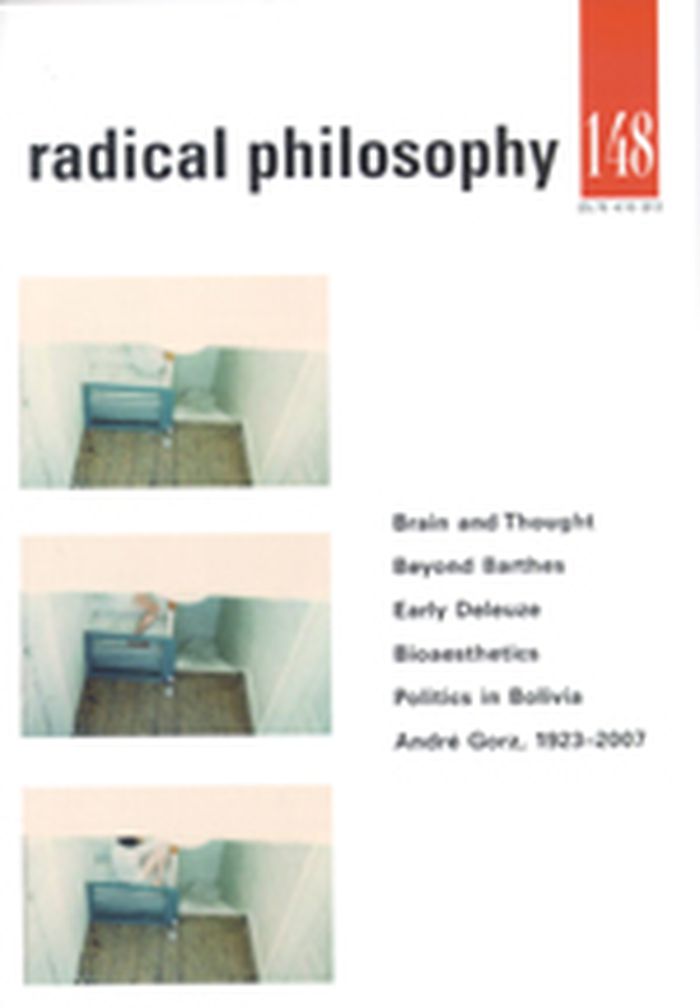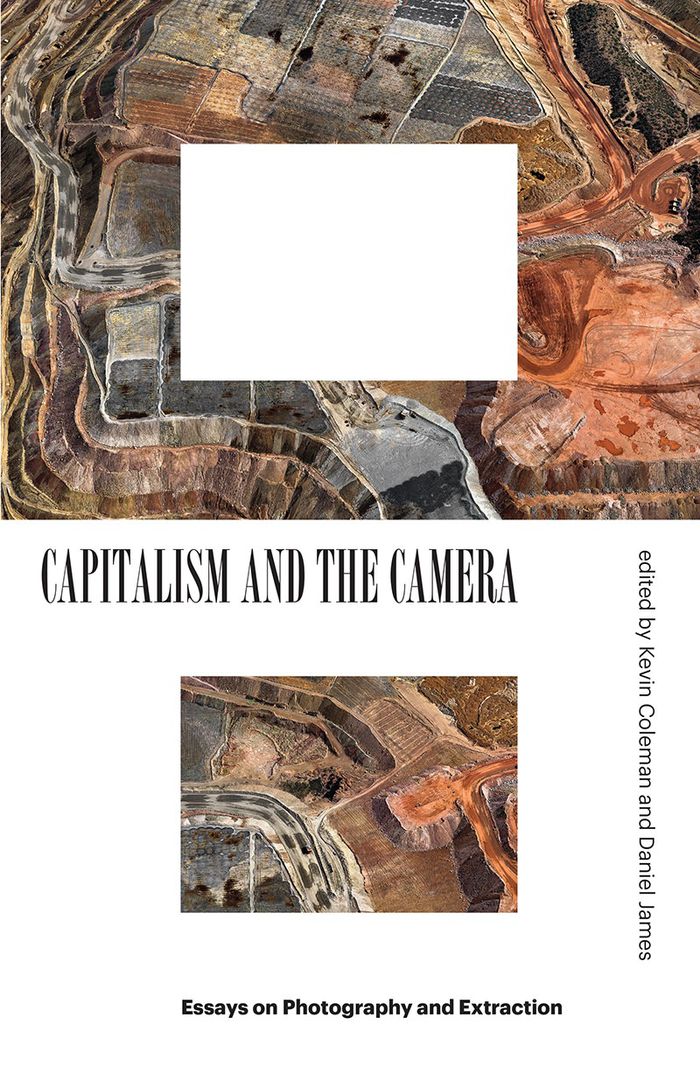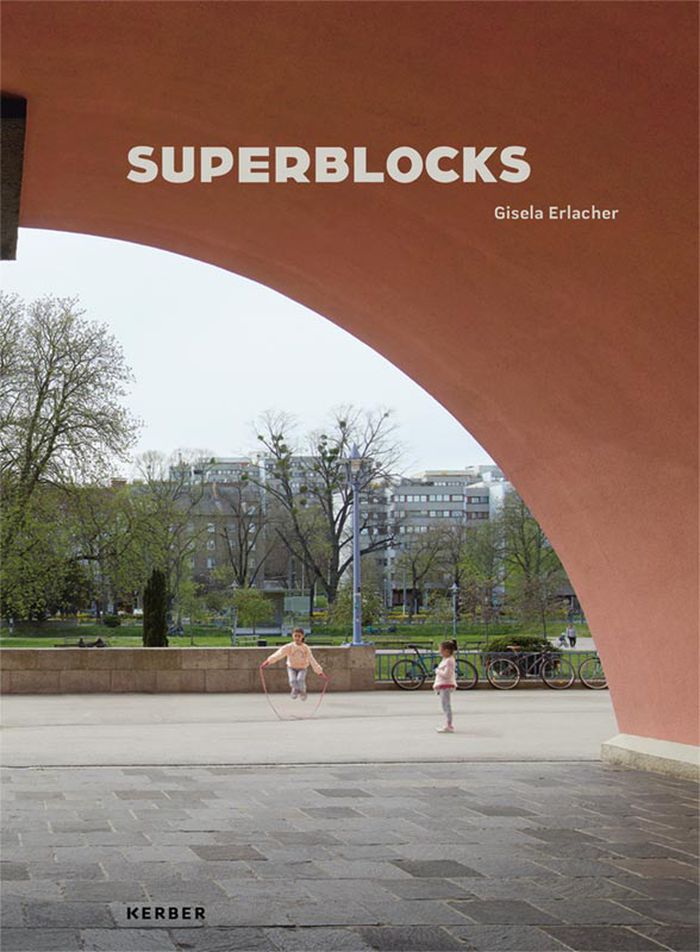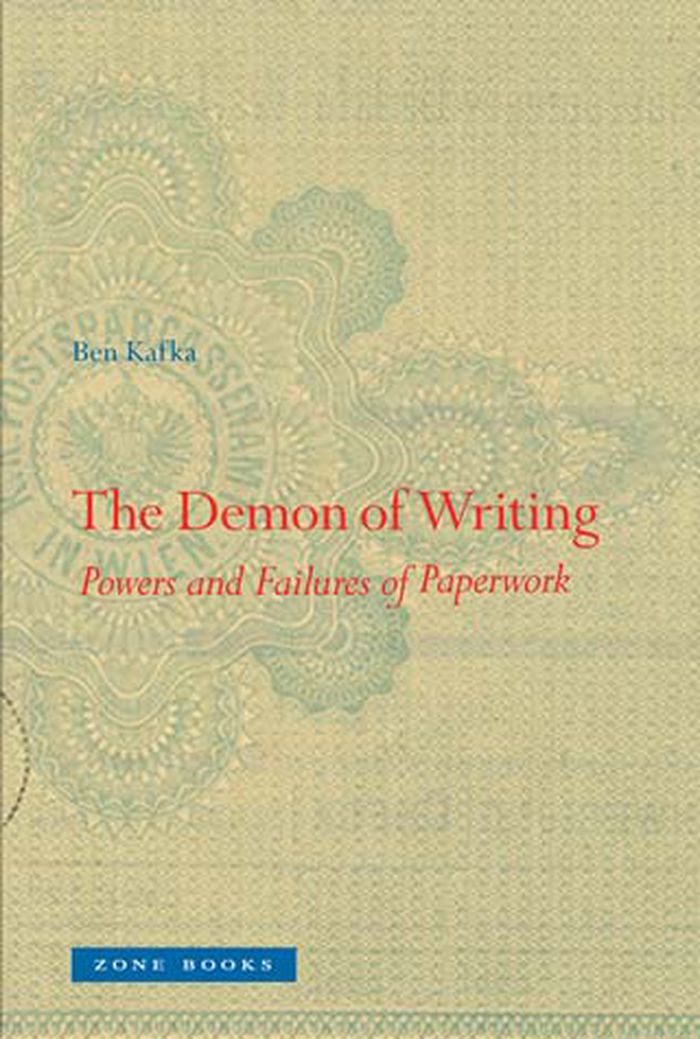121 Results
Actions:
Price:
$55.00
(available to order)
Summary:
Despite the famous pedagogical philosophy and teachers of the Bauhaus, the school's students have never received their due recognition. This historic publication includes works by Theo Balden, Eugen Batz, Max Bill, Marianne Brandt, Werner Drewes, Werner Gilles, Werner Graeff, Carl Marx, Erich Mende, Karl Peter Rohl, Wera Meyer-Waldeck and Fritz Winter.
$55.00
(available to order)
Summary:
Despite the famous pedagogical philosophy and teachers of the Bauhaus, the school's students have never received their due recognition. This historic publication includes works by Theo Balden, Eugen Batz, Max Bill, Marianne Brandt, Werner Drewes, Werner Gilles, Werner Graeff, Carl Marx, Erich Mende, Karl Peter Rohl, Wera Meyer-Waldeck and Fritz Winter.
Publication:
February 2014
February 2014
Title:
Bauhaus: the art of the students
Actions:
Price:
$55.00
(available to order)
Summary:
Despite the famous pedagogical philosophy and teachers of the Bauhaus, the school's students have never received their due recognition. This historic publication includes works by Theo Balden, Eugen Batz, Max Bill, Marianne Brandt, Werner Drewes, Werner Gilles, Werner Graeff, Carl Marx, Erich Mende, Karl Peter Rohl, Wera Meyer-Waldeck and Fritz Winter.
Bauhaus: the art of the students
Actions:
Price:
$55.00
(available to order)
Summary:
Despite the famous pedagogical philosophy and teachers of the Bauhaus, the school's students have never received their due recognition. This historic publication includes works by Theo Balden, Eugen Batz, Max Bill, Marianne Brandt, Werner Drewes, Werner Gilles, Werner Graeff, Carl Marx, Erich Mende, Karl Peter Rohl, Wera Meyer-Waldeck and Fritz Winter.
Form:
books
books
Actions:
Holdings:
Description:
231 pages : illustrations (chiefly color) ; 29 cm
Description:
231 pages : illustrations (chiefly color) ; 29 cm
Author:
- Jäger-Klein, Caroline.,
- Helmut Moser -- Karin Schwarz-Viechtbauer -- Caroline Jäger-Klein -- Peter Dietl, Wolfgang Souczek -- Caroline Jäger-Klein -- Sabine Plakolm-Forsthuber -- Sabine Plakolm-Forsthuber -- Marie Rezac -- Iva Kovacic -- Thomas Hrabal -- Brigitte Rabl, Karin Schwarz-Viechtbauer -- Christian Kühn -- Franz Hammerer -- Christian Kühn, Brigitte Rabl, Karin Schwarz-Viechtbauer -- Franz Hammerer, Elfriede Heinrich, Thomas Koch, Christian Kühn, Brigitte Rabl, Karin Schwarz-Viechtbauer -- Karin Schwarz-Viechtbauer -- Doris Damyanovic, Magdalena Uedl-Kerschbaumer, Angela Weikmann -- Günther Franz Pfaffenwimmer -- Christian Halbwachs, Margarethe Tschannett -- Jutta Kleedorfer, Heide Studer -- Doris Damyanovic, Alice Größinger, Angela Weikmann -- Martina Strobl, Vesna Urlicic -- Markus Kumpfmüller, Paula Polak -- Christian Winkler -- Brigitte Rabl, Alexander Schütz -- Magdalena Uedl-Kerschbaumer -- Alice Größinger, Paula Polak, Martina Strobl, Vesna Urlicic, Jutta Kleedorfer -- Hanno Schlögl -- Gernot Kulterer -- Leitner Pretterhofer Simbeni Architekten -- Treusch architecture -- Henke und schreieck Architekten -- Atelier4 architects -- Hübner Architekten -- Brunner & Sallmann -- Jürgen Koene, Arno Renelt -- Dietrich, Untertrifaller Architekten -- Cukrowicz Nachbaur Architekten -- ZT-Arguitectos -- K+P Architekten und Stadtplaner -- Fasch & fuchs.architekten -- One room georg huber, karl meinhart -- Peter Schwinde Architekt -- Bramberger, architects -- Dietmar Feichtinger Architects -- Marte. Marte Architekten -- Kaufmann.wanas architekten -- AMP Architekten -- Atelier Heiss Architekten -- Shibukawa Eder Architects --,
- Plakolm-Forsthuber, Sabine, 1959-,
- Österreichisches Institut für Schul- und Sportstättenbau.
(See more)
Subject:
- School buildings Austria.,
- School buildings Austria Designs and plans.,
- Architecture Austria 20th century.,
- Architecture Austria 21st century.,
- Constructions scolaires Autriche.,
- Constructions scolaires Autriche Dessins et plans.,
- Architecture Autriche 20e siècle.,
- Architecture Autriche 21e siècle.,
- Architecture,
- School buildings,
- Austria,
- Architectural drawings
(See more)
Publication:
Wien : NWV, Neuer Wissenschaftlicher Verlag, 2012.
Wien : NWV, Neuer Wissenschaftlicher Verlag, 2012.
Title:
Schulbau in Österreich 1996-2011 : Wege in die Zukunft / Caroline Jäger-Klein, Sabine Plakolm-Forsthuber ; Herausgeber: Österreichisches Institut für Schul- und Sportstättenbau im Auftrag des Bundesministeriums für Unterricht, Kunst und Kultur.
Actions:
Holdings:
Description:
231 pages : illustrations (chiefly color) ; 29 cm
Schulbau in Österreich 1996-2011 : Wege in die Zukunft / Caroline Jäger-Klein, Sabine Plakolm-Forsthuber ; Herausgeber: Österreichisches Institut für Schul- und Sportstättenbau im Auftrag des Bundesministeriums für Unterricht, Kunst und Kultur.
Actions:
Holdings:
Description:
231 pages : illustrations (chiefly color) ; 29 cm
Form:
books
books
Publication:
Wien : NWV, Neuer Wissenschaftlicher Verlag, 2012.
Wien : NWV, Neuer Wissenschaftlicher Verlag, 2012.
Author:
- Jäger-Klein, Caroline.,
- Helmut Moser -- Karin Schwarz-Viechtbauer -- Caroline Jäger-Klein -- Peter Dietl, Wolfgang Souczek -- Caroline Jäger-Klein -- Sabine Plakolm-Forsthuber -- Sabine Plakolm-Forsthuber -- Marie Rezac -- Iva Kovacic -- Thomas Hrabal -- Brigitte Rabl, Karin Schwarz-Viechtbauer -- Christian Kühn -- Franz Hammerer -- Christian Kühn, Brigitte Rabl, Karin Schwarz-Viechtbauer -- Franz Hammerer, Elfriede Heinrich, Thomas Koch, Christian Kühn, Brigitte Rabl, Karin Schwarz-Viechtbauer -- Karin Schwarz-Viechtbauer -- Doris Damyanovic, Magdalena Uedl-Kerschbaumer, Angela Weikmann -- Günther Franz Pfaffenwimmer -- Christian Halbwachs, Margarethe Tschannett -- Jutta Kleedorfer, Heide Studer -- Doris Damyanovic, Alice Größinger, Angela Weikmann -- Martina Strobl, Vesna Urlicic -- Markus Kumpfmüller, Paula Polak -- Christian Winkler -- Brigitte Rabl, Alexander Schütz -- Magdalena Uedl-Kerschbaumer -- Alice Größinger, Paula Polak, Martina Strobl, Vesna Urlicic, Jutta Kleedorfer -- Hanno Schlögl -- Gernot Kulterer -- Leitner Pretterhofer Simbeni Architekten -- Treusch architecture -- Henke und schreieck Architekten -- Atelier4 architects -- Hübner Architekten -- Brunner & Sallmann -- Jürgen Koene, Arno Renelt -- Dietrich, Untertrifaller Architekten -- Cukrowicz Nachbaur Architekten -- ZT-Arguitectos -- K+P Architekten und Stadtplaner -- Fasch & fuchs.architekten -- One room georg huber, karl meinhart -- Peter Schwinde Architekt -- Bramberger, architects -- Dietmar Feichtinger Architects -- Marte. Marte Architekten -- Kaufmann.wanas architekten -- AMP Architekten -- Atelier Heiss Architekten -- Shibukawa Eder Architects --,
- Plakolm-Forsthuber, Sabine, 1959-,
- Österreichisches Institut für Schul- und Sportstättenbau.
(See more)
Subject:
- School buildings Austria.,
- School buildings Austria Designs and plans.,
- Architecture Austria 20th century.,
- Architecture Austria 21st century.,
- Constructions scolaires Autriche.,
- Constructions scolaires Autriche Dessins et plans.,
- Architecture Autriche 20e siècle.,
- Architecture Autriche 21e siècle.,
- Architecture,
- School buildings,
- Austria,
- Architectural drawings
(See more)
Form:
books
books
Actions:
Description:
1 online resource
Author:
- Baas, Renzo,,
- Barata, Danillo,,
- Best, Karl-Heinz,,
- Bier, Silvia,,
- Fendler, Ute,,
- Fink, Katharina,,
- Gbadamosi, Raimi,,
- Gunkel, Henriette,,
- Igbasan, Kolade,,
- Kohl, Marie-Anne,,
- Krapp, Paula,,
- Kuhnke, Alexandra,,
- LaFleur, Ingrid,,
- McDermott, Emily,,
- Mathambo, Spoek,,
- Mushaandja, Nashilongweshipwe,,
- Naumann, Lena,,
- Peeren, Esther,,
- Rittler, Helena,,
- Siegert, Nadine,,
- Skriebeleit, Jörg,,
- Vincent, Simon,,
- Xaba, Wanelisa,,
- Youssouf, Mahamat Zene Ibrahim,,
- Library Stack,,
- Shoutlove,,
- Spoek Mathambo,,
- VES_OFF,,
- Library Stack.
(See more)
Subject:
Publication:
[Place of publication not identified] : Iwalewa Books, 2020.
[Place of publication not identified] : Iwalewa Books, 2020.
Title:
Ghosts, Spectres, Revenants : Hauntology as a Means to Think and Feel Future.
Actions:
Description:
1 online resource
Ghosts, Spectres, Revenants : Hauntology as a Means to Think and Feel Future.
Actions:
Description:
1 online resource
Form:
books
books
Publication:
[Place of publication not identified] : Iwalewa Books, 2020.
[Place of publication not identified] : Iwalewa Books, 2020.
Author:
- Baas, Renzo,,
- Barata, Danillo,,
- Best, Karl-Heinz,,
- Bier, Silvia,,
- Fendler, Ute,,
- Fink, Katharina,,
- Gbadamosi, Raimi,,
- Gunkel, Henriette,,
- Igbasan, Kolade,,
- Kohl, Marie-Anne,,
- Krapp, Paula,,
- Kuhnke, Alexandra,,
- LaFleur, Ingrid,,
- McDermott, Emily,,
- Mathambo, Spoek,,
- Mushaandja, Nashilongweshipwe,,
- Naumann, Lena,,
- Peeren, Esther,,
- Rittler, Helena,,
- Siegert, Nadine,,
- Skriebeleit, Jörg,,
- Vincent, Simon,,
- Xaba, Wanelisa,,
- Youssouf, Mahamat Zene Ibrahim,,
- Library Stack,,
- Shoutlove,,
- Spoek Mathambo,,
- VES_OFF,,
- Library Stack.
(See more)
Form:
books
books
Actions:
Price:
$18.95
(available to order)
Summary:
L'auteur Bill Bryson entreprend un Grand Tour à l'échelle d'une maison pour raconter de pièce en pièce l'aventure du génie humain. Au fil de cette histoire de l'envers du décor, vous croiserez des personnages tels que Virginia Woolf (qui n'aimait pas sa bonne) et Karl Marx (qui couchqit avec la sienne), vous saurez tout sur l'invention de la tapette à souris et vous(...)
$18.95
(available to order)
Summary:
L'auteur Bill Bryson entreprend un Grand Tour à l'échelle d'une maison pour raconter de pièce en pièce l'aventure du génie humain. Au fil de cette histoire de l'envers du décor, vous croiserez des personnages tels que Virginia Woolf (qui n'aimait pas sa bonne) et Karl Marx (qui couchqit avec la sienne), vous saurez tout sur l'invention de la tapette à souris et vous(...)
Title:
Une histoire du monde sans sortir de chez moi
Actions:
Price:
$18.95
(available to order)
Summary:
L'auteur Bill Bryson entreprend un Grand Tour à l'échelle d'une maison pour raconter de pièce en pièce l'aventure du génie humain. Au fil de cette histoire de l'envers du décor, vous croiserez des personnages tels que Virginia Woolf (qui n'aimait pas sa bonne) et Karl Marx (qui couchqit avec la sienne), vous saurez tout sur l'invention de la tapette à souris et vous comprendrez que sans les "water-closets à chasse d'eau" il n'y aurait pas eu de révolution industrielle...
Une histoire du monde sans sortir de chez moi
Actions:
Price:
$18.95
(available to order)
Summary:
L'auteur Bill Bryson entreprend un Grand Tour à l'échelle d'une maison pour raconter de pièce en pièce l'aventure du génie humain. Au fil de cette histoire de l'envers du décor, vous croiserez des personnages tels que Virginia Woolf (qui n'aimait pas sa bonne) et Karl Marx (qui couchqit avec la sienne), vous saurez tout sur l'invention de la tapette à souris et vous comprendrez que sans les "water-closets à chasse d'eau" il n'y aurait pas eu de révolution industrielle...
Form:
books
books
Publication:
July 2015
July 2015
Subject:
Architectural Theory
Architectural Theory
Form:
books
books
Actions:
Holdings:
Description:
537 pages : illustrations, plans ; 25 cm
Description:
537 pages : illustrations, plans ; 25 cm
Author:
- Roberto Gargiani -- Jean-Pierre Adam -- Pierre Gros -- Giovanni di Pasquale -- Giangiacomo Martines -- Jacques Heyman -- Papa Cassinello -- Philippe Plagnieux -- Emanuala Montelli -- Gianluca Belli -- Roberto Gargiani -- Jean-Marie Pérouse de Montclos -- Roberto Gargiani -- Arianna Bosio -- Roberto Gargiani -- Antonio Becchi -- Maria Losito -- Roberto Gargiani -- Patricia Radelet-de Grave -- Antonio Becchi -- Raya Hauri -- Gianluca Belli -- Bertrand Lemoine -- Arianna Bosio -- Carol Gaye -- Maria Chiara Barone -- John McKean -- Pierre Pinon -- Giulia Chemolli -- Giovanni Fanelli -- Carles Buxadé Ribot -- Damjan Prelovšek -- Karl-Eugen Kurrer -- Philippe Mivelaz -- Leo Schubert -- Anna Rosellini -- Jack Quinan -- Joseph M. Siry -- Sergio Poretti -- Jean-Pierre Cêtre -- Marco Pogacnik -- Bruno Reichlin -- Mario Ciammitti -- Paolo Amaldi -- Fernando Ramos -- Nicholas Adams with Nicola McElroy -- Léon Krier -- Bruno Marchand -- Jaques Lucan.,
- Gargiani, Roberto, 1956-
(See more)
Subject:
Publication:
Lausanne : Presses polytechniques universitaires romandes, 2008.
Lausanne : Presses polytechniques universitaires romandes, 2008.
Title:
La colonne : nouvelle histoire de la construction / sous la direction de Roberto Gargiani.
Actions:
Holdings:
Description:
537 pages : illustrations, plans ; 25 cm
La colonne : nouvelle histoire de la construction / sous la direction de Roberto Gargiani.
Actions:
Holdings:
Description:
537 pages : illustrations, plans ; 25 cm
Form:
books
books
Publication:
Lausanne : Presses polytechniques universitaires romandes, 2008.
Lausanne : Presses polytechniques universitaires romandes, 2008.
Author:
- Roberto Gargiani -- Jean-Pierre Adam -- Pierre Gros -- Giovanni di Pasquale -- Giangiacomo Martines -- Jacques Heyman -- Papa Cassinello -- Philippe Plagnieux -- Emanuala Montelli -- Gianluca Belli -- Roberto Gargiani -- Jean-Marie Pérouse de Montclos -- Roberto Gargiani -- Arianna Bosio -- Roberto Gargiani -- Antonio Becchi -- Maria Losito -- Roberto Gargiani -- Patricia Radelet-de Grave -- Antonio Becchi -- Raya Hauri -- Gianluca Belli -- Bertrand Lemoine -- Arianna Bosio -- Carol Gaye -- Maria Chiara Barone -- John McKean -- Pierre Pinon -- Giulia Chemolli -- Giovanni Fanelli -- Carles Buxadé Ribot -- Damjan Prelovšek -- Karl-Eugen Kurrer -- Philippe Mivelaz -- Leo Schubert -- Anna Rosellini -- Jack Quinan -- Joseph M. Siry -- Sergio Poretti -- Jean-Pierre Cêtre -- Marco Pogacnik -- Bruno Reichlin -- Mario Ciammitti -- Paolo Amaldi -- Fernando Ramos -- Nicholas Adams with Nicola McElroy -- Léon Krier -- Bruno Marchand -- Jaques Lucan.,
- Gargiani, Roberto, 1956-
(See more)
Title:
Radical Philosophy 148
Radical Philosophy 148
Actions:
Price:
$13.00
(available to order)
Summary:
Commentaries: Looking back on May '68 Articles: Art and Immaterial Labour Maurizio Lazzarato: Art, Work and Politics in Societies of Security Judith Revel: Against Idealism and New Vitalisms Franco Berardi/Bifo: Conjunction/Connection Antonio Negri: Concerning Periodization in Art Review: Knox Peden on Bourg's May 1968 and Contemporary French Thought Peter(...)
$13.00
(available to order)
Summary:
Commentaries: Looking back on May '68 Articles: Art and Immaterial Labour Maurizio Lazzarato: Art, Work and Politics in Societies of Security Judith Revel: Against Idealism and New Vitalisms Franco Berardi/Bifo: Conjunction/Connection Antonio Negri: Concerning Periodization in Art Review: Knox Peden on Bourg's May 1968 and Contemporary French Thought Peter(...)
Title:
Radical Philosophy 148
Actions:
Price:
$13.00
(available to order)
Summary:
Commentaries: Looking back on May '68 Articles: Art and Immaterial Labour Maurizio Lazzarato: Art, Work and Politics in Societies of Security Judith Revel: Against Idealism and New Vitalisms Franco Berardi/Bifo: Conjunction/Connection Antonio Negri: Concerning Periodization in Art Review: Knox Peden on Bourg's May 1968 and Contemporary French Thought Peter hallward on Alain Badiou on Sarkozy Gail Day on Marxism and the History of Art Steve Edwards on John Roberts's The Intangibilities of Form Andrew Chitty on David Leopold's The young Karl Marx Fabian Säfer on Re-politicising the Kyoto School as Philosophy
Radical Philosophy 148
Actions:
Price:
$13.00
(available to order)
Summary:
Commentaries: Looking back on May '68 Articles: Art and Immaterial Labour Maurizio Lazzarato: Art, Work and Politics in Societies of Security Judith Revel: Against Idealism and New Vitalisms Franco Berardi/Bifo: Conjunction/Connection Antonio Negri: Concerning Periodization in Art Review: Knox Peden on Bourg's May 1968 and Contemporary French Thought Peter hallward on Alain Badiou on Sarkozy Gail Day on Marxism and the History of Art Steve Edwards on John Roberts's The Intangibilities of Form Andrew Chitty on David Leopold's The young Karl Marx Fabian Säfer on Re-politicising the Kyoto School as Philosophy
Subject:
Magazines
Magazines
Form:
books
books
Actions:
Holdings:
Description:
309 pages, 10 unnumbered pages of plates : illustrations (some color) ; 25 cm
Description:
309 pages, 10 unnumbered pages of plates : illustrations (some color) ; 25 cm
Author:
- Cabin fever (Vancouver, B.C.),
- Marc-Antoine Laugier -- Karl Ove Knausgaard -- Jean-Luc Pilon -- C. A. Weslager -- Jennifer M. Volland -- Caroline M. Kirkland -- Dawn E. Keetley -- Alexis de Tocqueville -- Mark Twain -- W. E. B. Du Bois -- Stephanie Rebick -- Dianne Newell -- Marie Bolton and Nancy C. Unger -- Jennifer M. Volland -- Gary Snyder -- Jack Kerouac -- Edward Abbey -- Jennifer M. Volland -- Helen A. Burns -- Photographs by Richard Johnson -- Henry David Thoreau -- Jathryn Schulz -- Herbert Maier and A. H. Good -- Stephanie Rebick -- Michael Prokopow -- Anyssa Neumann -- Photographs by Julius Shulman -- David Hill -- Chad Randl -- Peter Rabbit -- Simon Sadler -- Stephanie Rebick -- Scott Watson -- Jennifer M. Volland -- Margaret Atwood -- Annie Dillard -- Allen Ginsberg -- Anne LaBastille -- Diana Saverin -- Mark Wigley -- Matthew Grant -- Finn Arne Jørgensen -- Steven Seidman -- Erin Cho -- Jennifer M. Volland -- Zach Klein -- Stephanie Rebick -- Akiva Blander -- Jennifer M. Volland -- Michael Pollan -- Allison Geller -- Stephanie Rebick -- Jennifer M. Volland -- Monica Kim -- Jennifer M. Volland -- Stephanie Rebick --,
- Volland, Jennifer M., 1970-,
- Grenville, Bruce,,
- Rebick, Stephanie,,
- Barnett, Derek,,
- Vancouver Art Gallery,
(See more)
Subject:
- Hütte,
- Log cabins Canada History Exhibitions.,
- Dwellings Canada History Exhibitions.,
- Dwellings United States History Exhibitions.,
- Dwellings Social aspects Canada History Exhibitions.,
- Dwellings Social aspects United States History Exhibitions.,
- Dwellings Canada History Pictorial works Exhibitions.,
- Dwellings United States History Pictorial works Exhibitions.,
- Cabanes en bois rond Canada Histoire Expositions.,
- Habitations Canada Histoire Expositions.,
- Habitations États-Unis Histoire Expositions.,
- Habitations Aspect social Canada Histoire Expositions.,
- Habitations Aspect social États-Unis Histoire Expositions.,
- Habitations Canada Histoire Ouvrages illustrés Expositions.,
- Habitations États-Unis Histoire Ouvrages illustrés Expositions.,
- Log cabins.,
- Dwellings.,
- Dwellings Social aspects.,
- Canada.,
- United States.,
- USA,
- Exhibition publications.,
- exhibition catalogs.,
- Exhibition catalogs.,
- Exhibition, pictorial works.,
- History.,
- Catalogues d'exposition.
(See more)
Publication:
Vancouver, BC : Vancouver Art Gallery : Information Office, [2018], ©2018
Vancouver, BC : Vancouver Art Gallery : Information Office, [2018], ©2018
Title:
Cabin fever / editors: Jennifer M. Volland, Bruce Grenville and Stephanie Rebick.
Actions:
Holdings:
Description:
309 pages, 10 unnumbered pages of plates : illustrations (some color) ; 25 cm
Cabin fever / editors: Jennifer M. Volland, Bruce Grenville and Stephanie Rebick.
Actions:
Holdings:
Description:
309 pages, 10 unnumbered pages of plates : illustrations (some color) ; 25 cm
Form:
books
books
Publication:
Vancouver, BC : Vancouver Art Gallery : Information Office, [2018], ©2018
Vancouver, BC : Vancouver Art Gallery : Information Office, [2018], ©2018
Author:
- Cabin fever (Vancouver, B.C.),
- Marc-Antoine Laugier -- Karl Ove Knausgaard -- Jean-Luc Pilon -- C. A. Weslager -- Jennifer M. Volland -- Caroline M. Kirkland -- Dawn E. Keetley -- Alexis de Tocqueville -- Mark Twain -- W. E. B. Du Bois -- Stephanie Rebick -- Dianne Newell -- Marie Bolton and Nancy C. Unger -- Jennifer M. Volland -- Gary Snyder -- Jack Kerouac -- Edward Abbey -- Jennifer M. Volland -- Helen A. Burns -- Photographs by Richard Johnson -- Henry David Thoreau -- Jathryn Schulz -- Herbert Maier and A. H. Good -- Stephanie Rebick -- Michael Prokopow -- Anyssa Neumann -- Photographs by Julius Shulman -- David Hill -- Chad Randl -- Peter Rabbit -- Simon Sadler -- Stephanie Rebick -- Scott Watson -- Jennifer M. Volland -- Margaret Atwood -- Annie Dillard -- Allen Ginsberg -- Anne LaBastille -- Diana Saverin -- Mark Wigley -- Matthew Grant -- Finn Arne Jørgensen -- Steven Seidman -- Erin Cho -- Jennifer M. Volland -- Zach Klein -- Stephanie Rebick -- Akiva Blander -- Jennifer M. Volland -- Michael Pollan -- Allison Geller -- Stephanie Rebick -- Jennifer M. Volland -- Monica Kim -- Jennifer M. Volland -- Stephanie Rebick --,
- Volland, Jennifer M., 1970-,
- Grenville, Bruce,,
- Rebick, Stephanie,,
- Barnett, Derek,,
- Vancouver Art Gallery,
(See more)
Subject:
- Hütte,
- Log cabins Canada History Exhibitions.,
- Dwellings Canada History Exhibitions.,
- Dwellings United States History Exhibitions.,
- Dwellings Social aspects Canada History Exhibitions.,
- Dwellings Social aspects United States History Exhibitions.,
- Dwellings Canada History Pictorial works Exhibitions.,
- Dwellings United States History Pictorial works Exhibitions.,
- Cabanes en bois rond Canada Histoire Expositions.,
- Habitations Canada Histoire Expositions.,
- Habitations États-Unis Histoire Expositions.,
- Habitations Aspect social Canada Histoire Expositions.,
- Habitations Aspect social États-Unis Histoire Expositions.,
- Habitations Canada Histoire Ouvrages illustrés Expositions.,
- Habitations États-Unis Histoire Ouvrages illustrés Expositions.,
- Log cabins.,
- Dwellings.,
- Dwellings Social aspects.,
- Canada.,
- United States.,
- USA,
- Exhibition publications.,
- exhibition catalogs.,
- Exhibition catalogs.,
- Exhibition, pictorial works.,
- History.,
- Catalogues d'exposition.
(See more)
Price:
$39.95
(available to order)
Summary:
Photography was invented between the publication of Adam Smith’s ''The Wealth of Nations'' and Karl Marx and Friedrich Engels’s ''The Communist Manifesto.'' Taking the intertwined development of capitalism and the camera as their starting point, the essays collected here investigate the relationship between capitalist accumulation and the photographic image, and ask(...)
$39.95
(available to order)
Summary:
Photography was invented between the publication of Adam Smith’s ''The Wealth of Nations'' and Karl Marx and Friedrich Engels’s ''The Communist Manifesto.'' Taking the intertwined development of capitalism and the camera as their starting point, the essays collected here investigate the relationship between capitalist accumulation and the photographic image, and ask(...)
Title:
Capitalism and the camera: essays on photography and extraction
Actions:
Price:
$39.95
(available to order)
Summary:
Photography was invented between the publication of Adam Smith’s ''The Wealth of Nations'' and Karl Marx and Friedrich Engels’s ''The Communist Manifesto.'' Taking the intertwined development of capitalism and the camera as their starting point, the essays collected here investigate the relationship between capitalist accumulation and the photographic image, and ask whether photography might allow us to refuse capitalism’s violence—and if so, how? Drawn together in productive disagreement, the essays in this collection explore the relationship of photography to resource extraction and capital accumulation, from 1492 to the postcolonial; the camera’s potential to make visible critical understandings of capitalist production and society, especially economies of class and desire; and the ways the camera and the image can be used to build cultural and political counterpublics from which a democratic struggle against capitalism might emerge.
Capitalism and the camera: essays on photography and extraction
Actions:
Price:
$39.95
(available to order)
Summary:
Photography was invented between the publication of Adam Smith’s ''The Wealth of Nations'' and Karl Marx and Friedrich Engels’s ''The Communist Manifesto.'' Taking the intertwined development of capitalism and the camera as their starting point, the essays collected here investigate the relationship between capitalist accumulation and the photographic image, and ask whether photography might allow us to refuse capitalism’s violence—and if so, how? Drawn together in productive disagreement, the essays in this collection explore the relationship of photography to resource extraction and capital accumulation, from 1492 to the postcolonial; the camera’s potential to make visible critical understandings of capitalist production and society, especially economies of class and desire; and the ways the camera and the image can be used to build cultural and political counterpublics from which a democratic struggle against capitalism might emerge.
Subject:
Theory of Photography
Theory of Photography
Title:
Gisela Erlacher: Superblocks
Gisela Erlacher: Superblocks
Actions:
Price:
$88.00
(available to order)
Summary:
With the municipal buildings of "Red Vienna," the utopia of enabling weaker individuals in society to also have a good life was realized. Originally erected in the 1920s to provide affordable living space for the working class as well as urban infrastructure, communal ownership of housing also makes it possible today to integrate people who would otherwise have limited(...)
$88.00
(available to order)
Summary:
With the municipal buildings of "Red Vienna," the utopia of enabling weaker individuals in society to also have a good life was realized. Originally erected in the 1920s to provide affordable living space for the working class as well as urban infrastructure, communal ownership of housing also makes it possible today to integrate people who would otherwise have limited(...)
Title:
Gisela Erlacher: Superblocks
Actions:
Price:
$88.00
(available to order)
Summary:
With the municipal buildings of "Red Vienna," the utopia of enabling weaker individuals in society to also have a good life was realized. Originally erected in the 1920s to provide affordable living space for the working class as well as urban infrastructure, communal ownership of housing also makes it possible today to integrate people who would otherwise have limited opportunities in neoliberal society. The relevance of municipal ownership to the current situation consists as well of the possibility to exert an attenuating influence on real estate speculation and rising rents. With her camera, Gisela Erlacher follows the parcours through the archways of "superblocks" such as the Sandleiten-Hof, Goethe-Hof, and Karl-Marx-Hof. She portrays residents and visitors in all their diversity and gives them space to present themselves beyond stereotyped depictions.
Gisela Erlacher: Superblocks
Actions:
Price:
$88.00
(available to order)
Summary:
With the municipal buildings of "Red Vienna," the utopia of enabling weaker individuals in society to also have a good life was realized. Originally erected in the 1920s to provide affordable living space for the working class as well as urban infrastructure, communal ownership of housing also makes it possible today to integrate people who would otherwise have limited opportunities in neoliberal society. The relevance of municipal ownership to the current situation consists as well of the possibility to exert an attenuating influence on real estate speculation and rising rents. With her camera, Gisela Erlacher follows the parcours through the archways of "superblocks" such as the Sandleiten-Hof, Goethe-Hof, and Karl-Marx-Hof. She portrays residents and visitors in all their diversity and gives them space to present themselves beyond stereotyped depictions.
Subject:
Photography monographs
Photography monographs
Actions:
Price:
$31.95
(available to order)
Summary:
Since the middle of the eighteenth century, political thinkers of all kinds--radical and reactionary, professional and amateur--have been complaining about “bureaucracy.” But what, exactly, are they complaining about? In The Demon of Writing, Ben Kafka offers a critical history and theory of one of the most ubiquitous, least understood forms of media: paperwork.(...)
$31.95
(available to order)
Summary:
Since the middle of the eighteenth century, political thinkers of all kinds--radical and reactionary, professional and amateur--have been complaining about “bureaucracy.” But what, exactly, are they complaining about? In The Demon of Writing, Ben Kafka offers a critical history and theory of one of the most ubiquitous, least understood forms of media: paperwork.(...)
Title:
The demon of writing: powers and failures of paperwork
Actions:
Price:
$31.95
(available to order)
Summary:
Since the middle of the eighteenth century, political thinkers of all kinds--radical and reactionary, professional and amateur--have been complaining about “bureaucracy.” But what, exactly, are they complaining about? In The Demon of Writing, Ben Kafka offers a critical history and theory of one of the most ubiquitous, least understood forms of media: paperwork. States rely on records to tax and spend, protect and serve, discipline and punish. But time and again, this paperwork proves to be unreliable. Examining episodes that range from the story of a clerk who lost his job and then his mind in the French Revolution to an account of Roland Barthes’s brief stint as a university administrator, Kafka reveals the powers, the failures, and even the pleasures of paperwork. Many of its complexities, he argues, have been obscured by the comic-paranoid style that characterizes much of our criticism of bureaucracy. Kafka proposes a new theory of what Karl Marx called the “bureaucratic medium.”
The demon of writing: powers and failures of paperwork
Actions:
Price:
$31.95
(available to order)
Summary:
Since the middle of the eighteenth century, political thinkers of all kinds--radical and reactionary, professional and amateur--have been complaining about “bureaucracy.” But what, exactly, are they complaining about? In The Demon of Writing, Ben Kafka offers a critical history and theory of one of the most ubiquitous, least understood forms of media: paperwork. States rely on records to tax and spend, protect and serve, discipline and punish. But time and again, this paperwork proves to be unreliable. Examining episodes that range from the story of a clerk who lost his job and then his mind in the French Revolution to an account of Roland Barthes’s brief stint as a university administrator, Kafka reveals the powers, the failures, and even the pleasures of paperwork. Many of its complexities, he argues, have been obscured by the comic-paranoid style that characterizes much of our criticism of bureaucracy. Kafka proposes a new theory of what Karl Marx called the “bureaucratic medium.”
Subject:
Architectural Theory
Architectural Theory




